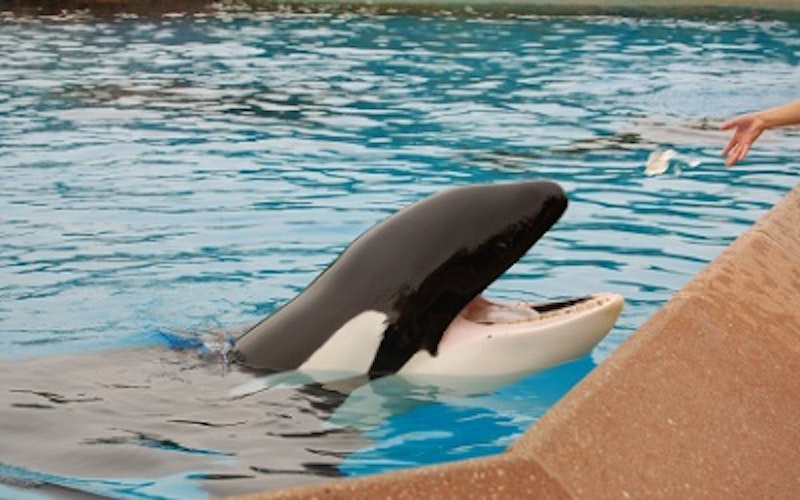
Culture At Large
Saying no to SeaWorld
It has been a long time - three decades if my memory serves me right - since I last visited SeaWorld. I don’t remember feeling ambivalent about the confined spaces or manipulative treatment of the orcas, dolphins and porpoises on display. I simply accepted that this was a marine mammal show and didn’t think twice about what lay below the surface or behind the scenes of SeaWorld’s spectacle.
I now reside on the other side of ambivalence: I wouldn’t patronize SeaWorld or any of its close cousins. Which means that I reside on the same side as the documentary Blackfish.
Blackfish tells the story of orcas, a.k.a. killer whales, in captivity. More particularly, it focuses on an orca named Tilikum, infamous for its involvement in three deaths. The latest tragedy was the death of trainer Dawn Brancheau in 2010. Despite attempts by SeaWorld to blur the facts and re-label the tragedy as “unfortunate accident,” the reality is that she was drowned and dismembered by an aggressive whale in a training tank.
By all accounts, Blackfish makes for uncomfortable viewing. SeaWorld refused to participate in the making of the documentary, claiming Blackfish is rife with bias and misinformation. The park has unleashed its own spinmeisters to shore up its alternative storyline. SeaWorld portrays itself as a haven for orphaned and wounded whales, a generator of scientific knowledge about marine mammals and an instigator of positive publicity for sea creatures that would otherwise go unappreciated.
A curious assumption underlies much of the debate over orcas in captivity. It is an assumption found on both sides. The assumption? Appropriate treatment of orcas depends on how much like us they are. It is as if degree of analogia entis - analogy of being - answers everything.
God didn’t create them to be us or like us.
SeaWorld’s version? Orcas, dolphins and porpoises are like us. They’re smart. They’re kind and social and friendly. They wave their flippers. They do tricks. They love to put on a show. They appreciate applause. Many are better off in comfortable, confined, pampered captivity than in red-clawed and red-toothed nature.
For those who argue orcas should not be captured and held captive? They are like us. They are intelligent, social, complex, nurturing, protective (the list goes on) creatures. Separating calves from mothers in the wild using helicopters, boats and explosive devices? Horror! (It is, actually.) Confining orcas in undersized concrete pens with no “environmental enhancements” to relieve the tedium? Barbaric! Placing calves in confined spaces with older, bullying orcas who rake the calves’ sides with their teeth? Inhumane! Is it any wonder that such practices produce mentally-ill killer whales that snap and go on killing rampages (just like us)?
Let me put in a word for respecting orcas because they are not us. God didn’t create them to be us or like us. God created them to be orcas. Orcas in all their “orca-ness.”
They are the Other, which means they are like us and they are not. The “not” part is to be respected equally as much as the “like us” part. Refusal to capture and confine orcas does not depend on turning them into fishy/whaly humans who would be kind and gentle were they not mistreated. Dolphins and whales are not a proxy for pre-fall, Edenic humans - what humans would be if we hadn’t fallen into sin.
Orcas bond and show affection and raise their young and protect against outsiders. They are pack animals with dominant males who use intimidation and physical violence to maintain their status. They are vicious killers of prey. Orcas are complex creatures surviving and thriving in an environment that rewards certain behavior. Let them be what they were created to be. Sunt quod sunt (they are what they are).
The same goes for dolphins and porpoises. Not to ruin your image of dolphins (although I probably will), but it has been known for some time that dolphins routinely kill other dolphins and porpoises and also engage in infanticide. It’s an unsettling picture. But it’s what they are. And what they are does not warrant captivity and confinement. Most certainly not for human amusement.
Topics: Culture At Large, Science & Technology, Environment, Arts & Leisure, Entertainment